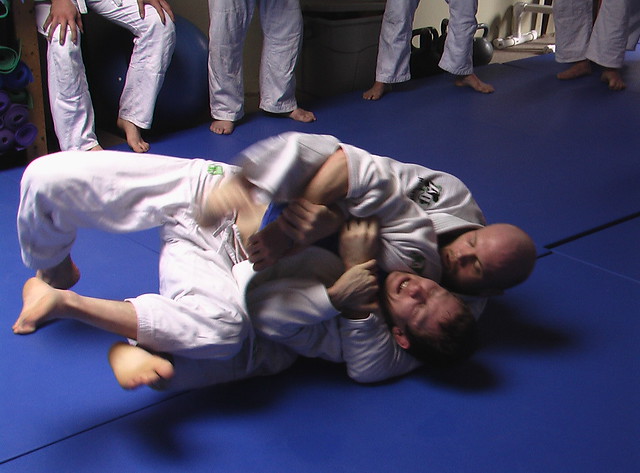Mat Rats–Contextual coaching towards Expertise
It is rare that I have anything that resembles spare time but in the words of Lemmy, who at the time was referencing beer, “There’s no such thing as extra, but you can have some of mine!”

Creative Commons license via egvvnd
Time is a hot commodity in the @DrTimony household these days and between the full time job, part time job, wife, pre-K mini-@Timony, and sleep, it gets downright sticky. When it gets sticky, stress has its opportunity to creep onto the agenda making the brief moments of repose seem barely worth the while. The first thing that tends to suffer the wrath of the scheduling blade is getting to my gym of choice, Balance Studios. And, as many of the sharper readers know, exercise is probably the one thing that could make a life less stressful.
Getting back to the mats has increased the calm in my life. Some friends have said that it must be nice to “blow off some steam” by sparring. I understand the sentiment but it could not be more distant from the truth. Brazilian Jiu Jitsu (the gentle art) provides me with some of the greatest calm that I experience through the week. There is no steam. It is more like meditation. Meditation with chokes and joint locks.
Even while sitting off to the side to catch my breath, I enjoy watching the chess match unfolding before me.

This week I was able to take in some excellent instruction and engage in several challenging matches. Watching some friends ‘roll’ gave me time to reflect on my decision making process on the mat as well as the input that I received during and after some matches. It is common to pause after a match, submission, or major positional transition and have a training partner provide a few words of feedback. I sat watching and began to categorize the different types of training partners that I encountered that day and in days past. Listening to the narrative of breaths, compliments, corrections, and encouragements. The roles of individuals on the mat depended on the equity of skills. I found myself in the catbird seat among a dynamic context of coaching and made note of a few characters.
The nicknames that I give to these folks are non-judgmental and are solely intended to differentiate.
The Lion: Confident in skills and willing to let the training partner experience dominant positions to practice their offense. The Lion is conversely willing to place the opponent into unenviable, defensive positions with a fraction of the pressure to encourage escapes with good technique. Timely, rare, encouragements inspire.
Cubs: These are real gamers–there is equity in skill and respect. They match each other in intensity which often varies. The level of effort and challenge is often expressed in percentages. These training partners may agree on a level of challenge at 30-50-75% often called ‘flow-rolling.’ This is done to work on the transition more than the endgame. It is common to hear talk-aloud discussion during their training or to pause to make corrections or to discuss best methods for drilling a particular maneuver.
The Predator: This is the no-nonsense competitor who moves from dominant position to dominant position seeking the submission regardless of the equity of the matchup. For over-matched partners, you will typically see them spending their time surviving and tapping when they cannot prevent the choke or joint lock.
These are only a few of the models that may be seen on the mats and I cannot help but wonder how these context specific coaches may serve to advance high level skill acquisition and the progression towards Expertise. More to come.



